Small Grants for Scaled Impact
CORE Group is excited to begin a participatory small grants program to advance sexual, reproductive, maternal, newborn, child, and adolescent health (SRMNCAH) programming, policy, and interventions in Bangladesh, Cambodia, and Nepal. The program will provide 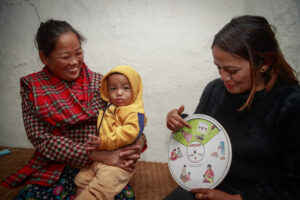 financial, technical, and organizational resources to local civil society organizations (CSOs) led by women, youth, and people with disabilities. This approach will strengthen local and national organizations’ technical and organizational capacity to design and implement community-based solutions to SRMNCAH challenges, focusing on gender transformation, quality of care, and health equity.
financial, technical, and organizational resources to local civil society organizations (CSOs) led by women, youth, and people with disabilities. This approach will strengthen local and national organizations’ technical and organizational capacity to design and implement community-based solutions to SRMNCAH challenges, focusing on gender transformation, quality of care, and health equity.
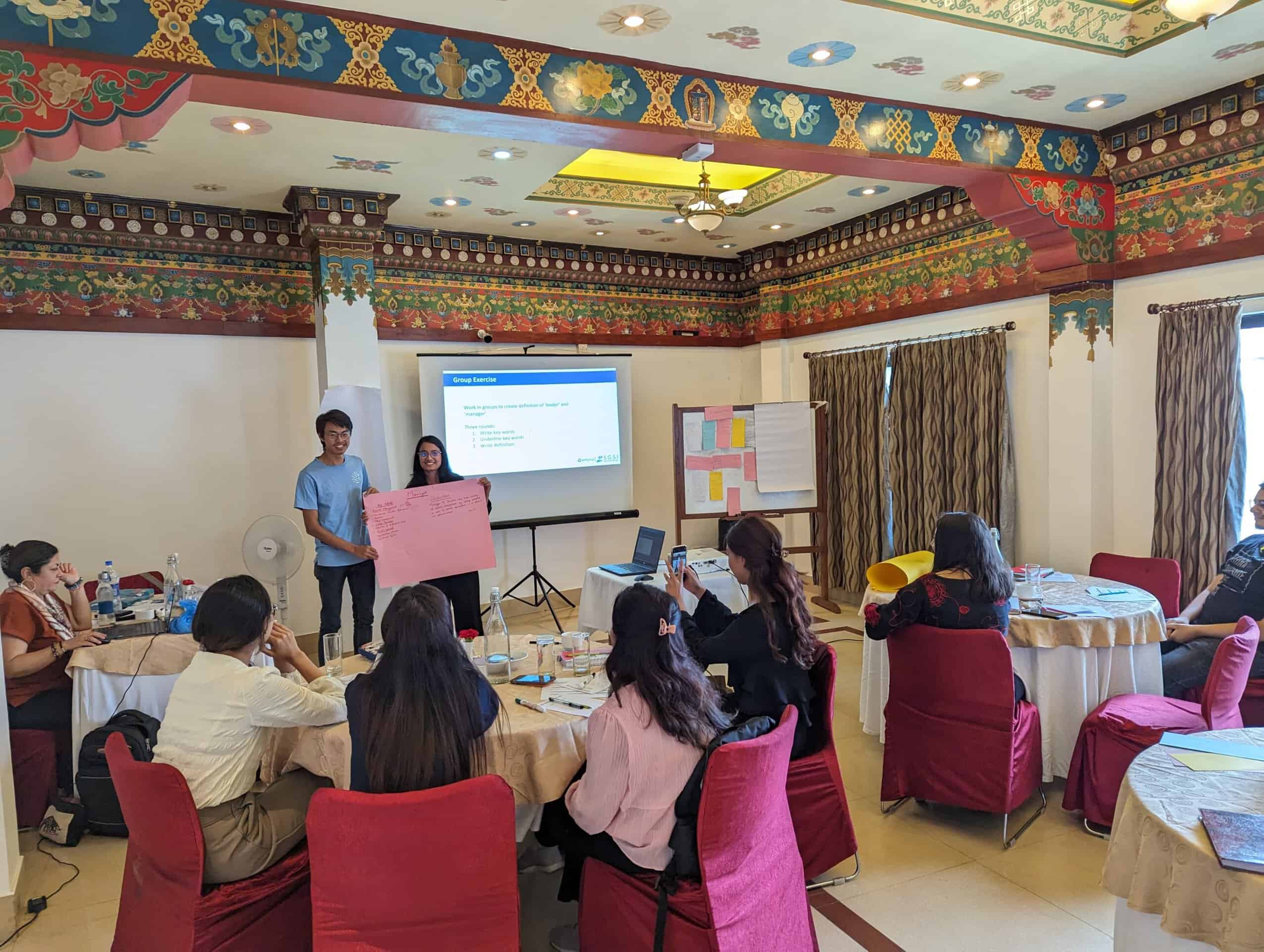
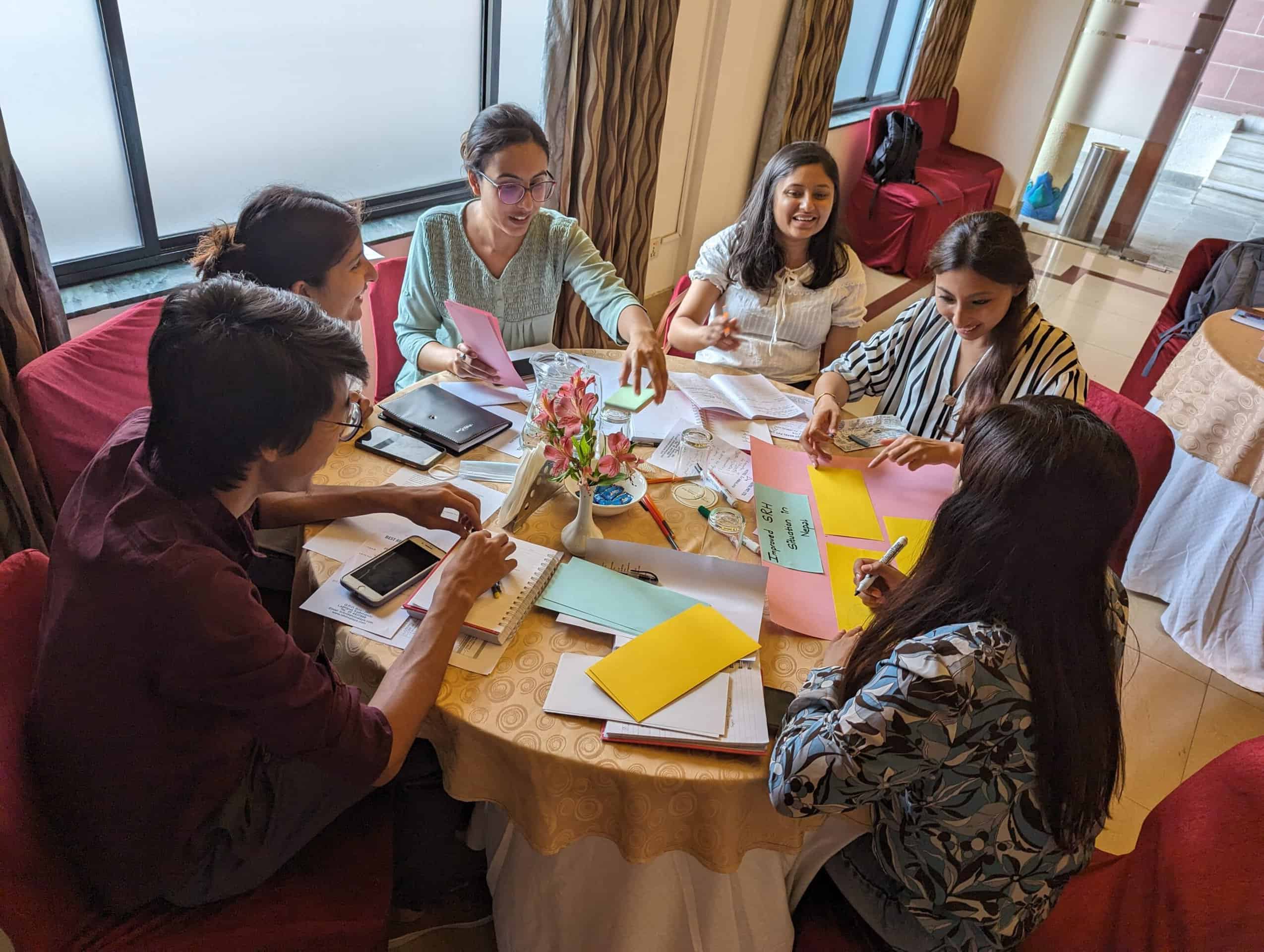
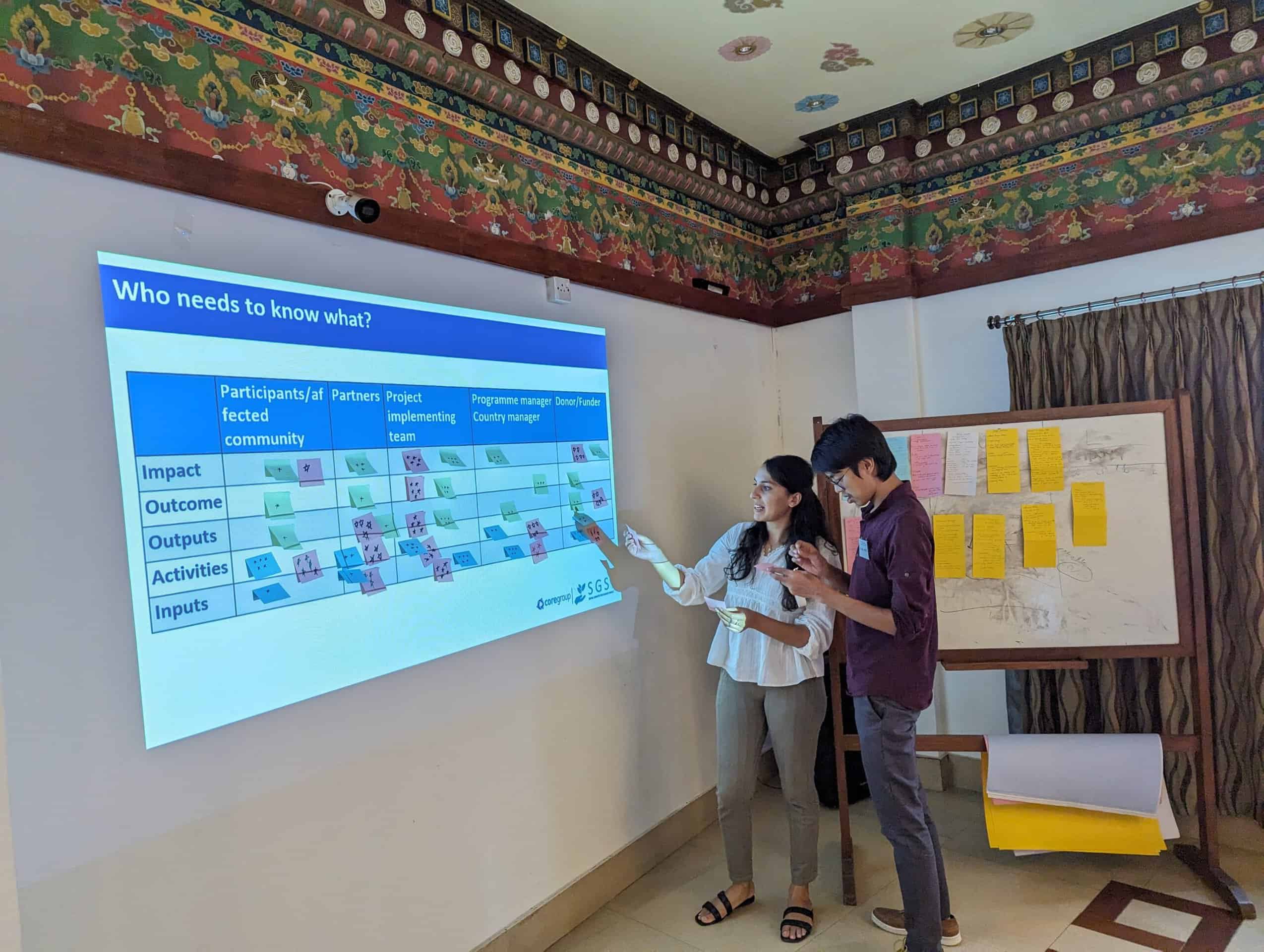
Grantees
Below are the three selected grantees from Round 1 of the Small Grants Project. They were selected in a competitive process, with over 114 concept notes received from the three priority countries.
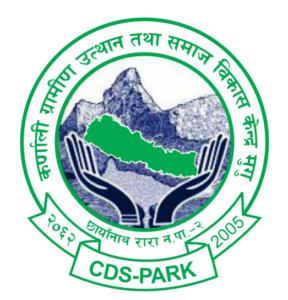 Center for Karnali Rural Promote and Society Development (CDS-PARK)
Center for Karnali Rural Promote and Society Development (CDS-PARK)
Project title: Comprehensive Disability and Health Program
Center for Karnali Rural Promote and Society Development (CDS-PARK) has worked on youth issues since 2004. CDS-PARK is a leading national and regional organization committed to progressive societal change through awareness, counseling, and program support. Our organization’s main mission is to work for good governance, sustainable peace, development and good health and well-being to bring positive social change, particularly among the underprivileged community, by awareness raising, capacity strengthening and, providing opportunities for 17 years now in the rural Karnali region of Nepal.
Summary of the Project
CDS Park wants to work on the unmet sexual and reproductive health needs of women with disabilities. With this project entitled Comprehensive Disability and Health Program (CDHP), we tend to bridge the knowledge gap and sensitize government and other organizations to take into account the intersectional SRHR issues of women living with disabilities and reduce and mitigate the barriers prevailing in today’s context through the gender-sensitive approach. This project aims to generate evidence on SRH issues of women living with disabilities through research, developing disability-friendly infrastructures and advocating for progressive laws and facilities for people living with disabilities and addressing specific health-related issues of women with disabilities.
- Website: https://cdsparknepal.org/
- Facebook: https://www.facebook.com/cdsparknepal/
 Visible Impact (Visim)
Visible Impact (Visim)
Project title: Youth Empowerment for Sexual and Reproductive Health and Rights (YES)
Visible Impact (Visim) is a young-women-led not-for-profit organization that aims to create a ‘visible impact’ in the lives of youth, adolescent girls and women and their immediate families and communities with a focus on leadership development, advocacy, and realization of their sexual and reproductive health and rights.
Established in 2015, Visim has directly reached 23,000 adolescents and youth. One hundred fifty-seven social champions have been empowered to be the voice in the community – advocating for sexual and reproductive health and rights, and leading towards community-led local development as mandated in the federal setup by the Constitution of Nepal 2015.
Summary of the Project
Youth Empowerment for Sexual and Reproductive Health and Rights (YES) is an initiative that aims to reduce the unmet needs of special groups in accessing Sexual and Reproductive Health and Rights (SRHR). The project’s target beneficiaries are adolescents and youth in their diversity, women with disabilities and the LGTBQ population. Through this project, 28 young people from all seven provinces of Nepal will be unleashed as champions of their province who will further cascade their learning through peer and community sessions. The youth champions will also conduct a series of meetings with their local government and key stakeholders to advocate for the availability and accessibility of youth-friendly, stigma-free and inclusive sexual and reproductive health information and services.
The project also aims to target healthcare professionals from different provinces of Nepal to clarify their values on youth-friendly and inclusive SRHR information and services. Different social media campaigns and language-inclusive public service announcements will also be developed to bridge the gap in information and generate public support for inclusive SRHR information and services.
- Website: https://visim.org/
- Facebook: https://www.facebook.com/VisibleImpact
- Twitter: https://twitter.com/Vis_Im
- Instagram: https://www.instagram.com/visibleimpact2015/
- Linkedin: https://np.linkedin.com/company/visible-impact-2015
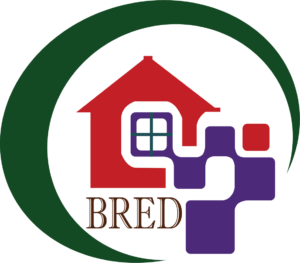 Bangladesh Rural Economic Development (BRED)
Bangladesh Rural Economic Development (BRED)
Project title: Improving Sexual, Reproductive, Maternal, Newborn, Child, and Adolescents Health
Bangladesh Rural Economic Development (BRED) was established on 15 March 1995 as a non-government, non-political and non-profit voluntary development organization by a social activist to improve the socio-economic and livelihood status of the poor and underprivileged people of its working area through building up their capacity and establishing social rights. BRED is mainly a grassroots-level NGO, but it contributes to developing society by implementing projects/activities and conducting advocacy at regional and national levels to formulate pro-people policies, networking and partnerships.
Summary of the Project
From time immemorial, girls have been married at an early age, which is related to dowry, divorce and poor treatment of girls. BRED will address adolescent girls’ early marriage and pregnancy because this issue exacerbates severe health such as increased maternal and child mortality. After the country’s independence, the government has given much attention to the health sector. INGO and NGOs are also working to reduce this problem. A substantial number of facilities are built, but those are not adequate to meet the growing demands. Thus, despite government and NGOs’ efforts, early marriage and women’s health care problems are increasing. The project will help reduce trends in early marriage, dowry practice, and maternal and child mortality by mobilizing the community and building their knowledge, capacity and skills.
- Website: www.bredbd.net
Below are the two selected grantees from Round 2 of the Small Grants Project. They were selected in a competitive process, with 76 concept notes received from the three priority countries.
 NFCC
NFCC
The CAMA* Project *Contraception Among Married Adolescents
Project title: Increasing Uptake of Modern Contraception Among Married Adolescents in Selected Municipalities of Madhesh Pradesh of Nepal
NFCC was established in 1988 as a national non-governmental, non-profit organization that has followed a multi-level approach to make reproductive health available, accessible, and affordable to people in Nepal. This mission of NFCC has manifested through direct technical assistance and partnerships with the government, INGOs, NGOs and CBOs from the center right up to the ward level. Having worked for more than three decades in all seven provinces of Nepal, NFCC has made its presence felt across Nepal, working on pertinent issues of sexual and reproductive health like family planning, HPV, STIs, adolescent health and life skills, Gender-Based Violence, FP, etc. NFCC has provided technical support on SRH to national and international counterparts and conducted extensive research in family planning, HPV/cervical cancer, menstrual health, hygiene, and rights, including developing tool kits and job aids and providing real-time guidance to support field practitioners.
Summary of the Project
The project aims to improve the overall status of sexual and reproductive health and rights of married adolescents through fulfilling their needs for family planning information, counseling, and services in marginalized communities of selected municipalities of 8 districts with a high AFR in Madhesh Pradesh. The intervention is based on Supply-Enabling Environment-Demand (SEED) Model for Family Planning and all intervention activities will follow the Human Centered Design (HCD) approach.
The project would facilitate access to and linkages with family planning information, counseling and services. A special Family Planning Rupantaran (FPR) package using Human Centered Design will be developed and implemented in active collaboration with local governments. In addition, the project will focus on strengthening the capacity of local public sector health facilities for equitable and adolescent-responsive SRH service delivery by promoting the role and coordination of local governments.
Since adolescents are more likely to rely on private sector sources for FP than their older counterparts in Nepal, private sector FP service providers will be mapped and linked to the married adolescents participating in the project. Hence, they can exercise choice when accessing FP services. To overcome SRMNCAH barriers, specially designed Social Behavior Change Communication activities like digital media suitable for married adolescents and their migrant spouses, distribution of IEC materials, and inclusive community interactions between local FP service providers and married adolescents will be conducted. The project will ensure that married adolescents are aware of their sexual and reproductive health rights as guaranteed by the constitution, act, and regulation of Nepal. Local health facilities provide quality family planning services to married adolescents and the existing environment where married adolescents access and utilize family planning information and services without any barriers is improved.
- Website: nfcc.org.np
- Facebook: https://www.facebook.com/nfccnepal
- Instagram: https://www.instagram.com/nfccinnepal/
- Twitter: https://twitter.com/nfccint/
- Youtube: https://www.youtube.com/@nfccnepal325
- TikTok: https://www.tiktok.com/@nfccnepal
- LinkedIn: NFCC Nepal | LinkedIn
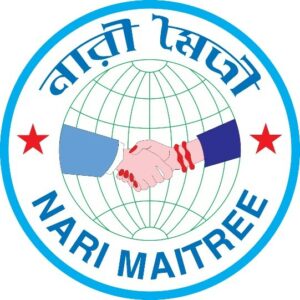 Nari Maitree
Nari Maitree
Project title: Unmet Maternal and Child health needs for refugees or internally displaced population
Nari Maitree is a women-led non-governmental organization based in Bangladesh that promotes gender equality, women’s rights, and community development. Founded in 1983, the organization has a long history of working with marginalized women and girls in rural, urban and refugee areas. Nari Maitree works to improve the lives of poor people, especially children and women, through education, health and nutrition, food security, livelihood, skill development, water, sanitation and hygiene (WASH), child protection, advocacy, network building, women empowerment and disaster risk reduction. Through various programs and initiatives, Nari Maitree has served over 10 million people in Bangladesh. Nari Maitree is run by a team of committed women leaders passionate about creating a more equitable and just society for all.
The vision of Nari Maitree is to “create an equitable society where women and girls can live a life free from violence, exploitation, and discrimination.” Nari Maitree’s work in Bangladesh has significantly impacted millions of people’s lives, contributing to the country’s social and economic development and helping to create a more equitable and just society.
Summary of the Project
The health status of Rohingya refugees or Forcibly Displaced Myanmar Nationals (FDMNs), especially women and children, is a significant challenge for humanitarian workers in Bangladesh. The project is important for several reasons: maternal and child mortality rates are often high in refugee populations due to inadequate access to healthcare and poor living conditions; malnutrition is a significant problem in the FDMN communities in Cox’s Bazar, with many children suffering from acute malnutrition. The project aims to improve the health and well-being of the forcibly displaced Myanmar nationals (Rohingya) and other host communities living in Cox’s Bazar district in Bangladesh by addressing their SRMNCAH needs.
The project aims to address the SRMNCAH barriers by improving access to quality MNCH and nutrition services by establishing service delivery points within the FDMN communities and preventing maternal and child deaths by providing timely and quality MNCH and nutrition services, including prenatal care, skilled birth attendance, postnatal care, and child health services. The project will provide essential health care to Rohingya mothers and children, including host communities with potential health risks.
- Website: narimaitree.com
- Facebook: https://www.facebook.com/narimaitreebd
- Twitter: https://twitter.com/narimaitree
- Instagram: https://www.instagram.com/narimaitree/
- LinkedIn : https://www.linkedin.com/in/nari-maitree-158660244/
- YouTube: https://www.youtube.com/@narimaitreebd
 Partners for Development in Action (PfDA) Project title: Sexual Reproductive Health for Adolescents in Koh Kong Province (SRHAK)
Partners for Development in Action (PfDA) Project title: Sexual Reproductive Health for Adolescents in Koh Kong Province (SRHAK)
Partners for Development in Action (PfDA) was registered with the Cambodian Ministry of Interior as a Cambodian non-governmental organization in 2007. PfDA is governed by a Board of Directors consisting of five members. Currently, PfDA has a central office in Phnom Penh, the capital city, and provincial offices in Kampot, Koh Kong and Pursat. PfDA works to improve the living standard of vulnerable and underserved communities through interventions that promote overall development, including, but not limited to, collaborative activities in health, education, agriculture, food security and nutrition, environment and women empowerment.
Summary of the Project
With funding support from Core Group, the SRHAK project will be implemented in Mondul Seima and Botom Sakor Districts, Koh Kong Province, focusing on contraception, sexual and reproductive health among in and out-of-school youth for the period from September 2023 to December 2024. The project has three specific objectives:
- To increase knowledge of young women (in and out of school) by at least 30% on contraception, sexuality education, sexual reproductive health, family planning, HIV/AIDS, and other general health subjects.
- To increase access to contraception and Adolescent Sexual and Reproductive Health Services at health facilities by 30% for young women.
- To create enabling environment for Adolescent Sexual and Reproductive Health in all target villages and schools.
- Website: http://www.pfdakhmer.org
Photo credit: Indra Dhoj Kshetri / HKI

